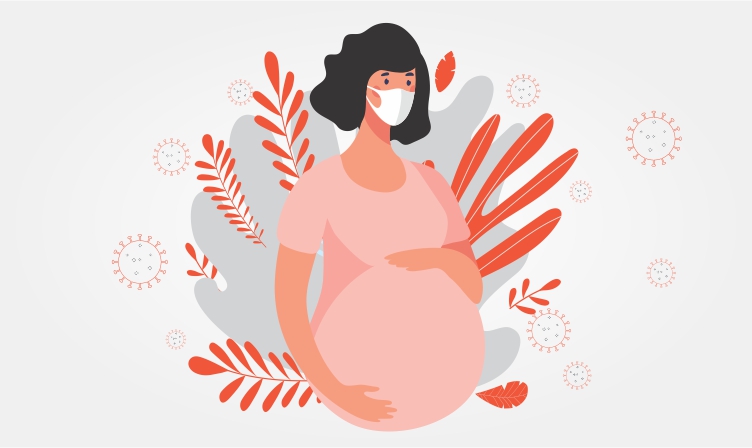
How Does COVID-19 Affect Pregnant Women And Their Babies?
Every mother is worried and anxious about her children amidst the COVID-19 pandemic. But if you're expecting a child, you probably have a lot of questions about whether coronavirus is a risk to you and your baby. Because of the disease's changing pattern, the solutions aren't yet crystal clear. Here's what you need to learn about it.
What are the effects of COVID-19 on pregnant women?
When compared to non-pregnant women, pregnant women are at a higher risk of serious illness from COVID-19. They may also be more susceptible to other negative effects, such as preterm birth. If a woman suspects she has COVID-19 while pregnant, she should contact her doctor right away and get tested.
What effect does COVID-19 have on the baby?
COVID-19 can be transmitted to newborns, and some babies test positive for the SARS-CoV-2 virus shortly after birth. COVID-19-positive newborns have mild to no symptoms and make a complete recovery in the majority of cases. However, there have been a few reports of serious illness in newborns. Early birth and other pregnancy or birth complications are found sometimes in women with COVID-19 in a few cases.
What are the preparations that should be considered before childbirth?
During a pandemic, the safest place to give birth is under the supervision of a qualified medical professional. Women who believe they have COVID-19 close to their due date should contact their hospital ahead of time to learn about their treatment and delivery options.
What happens after childbirth?
If a pregnant woman has COVID-19, a doctor can advise temporarily separating the mother and newborn after delivery. Mothers who do not want to be separated from their children should exercise extra caution such as regular hand-washing and covering face with a cloth, and those advised by their doctors.
Does COVID-19 affect breastfeeding?
One of the most common concerns among new mothers with COVID-19 is whether or not to breastfeed their children. Breast milk has several advantages for newborns: it is not only nutrient-dense, but it also contains antibodies and hormones that protect newborns from disease and aid in their development. It is found that SARS-CoV-2 is not present in the breast milk of women who have COVID-19. However, women who have COVID-19 should take extra care while breastfeeding to avoid passing the virus on to the infant. Before handling the infant, women who want to breastfeed should wear a face mask and wash their hands.
It is advised to consult your healthcare provider for concerns related to the impact of COVID-19 on your health or your to-be-born child's health, and strictly follow their guidance.

